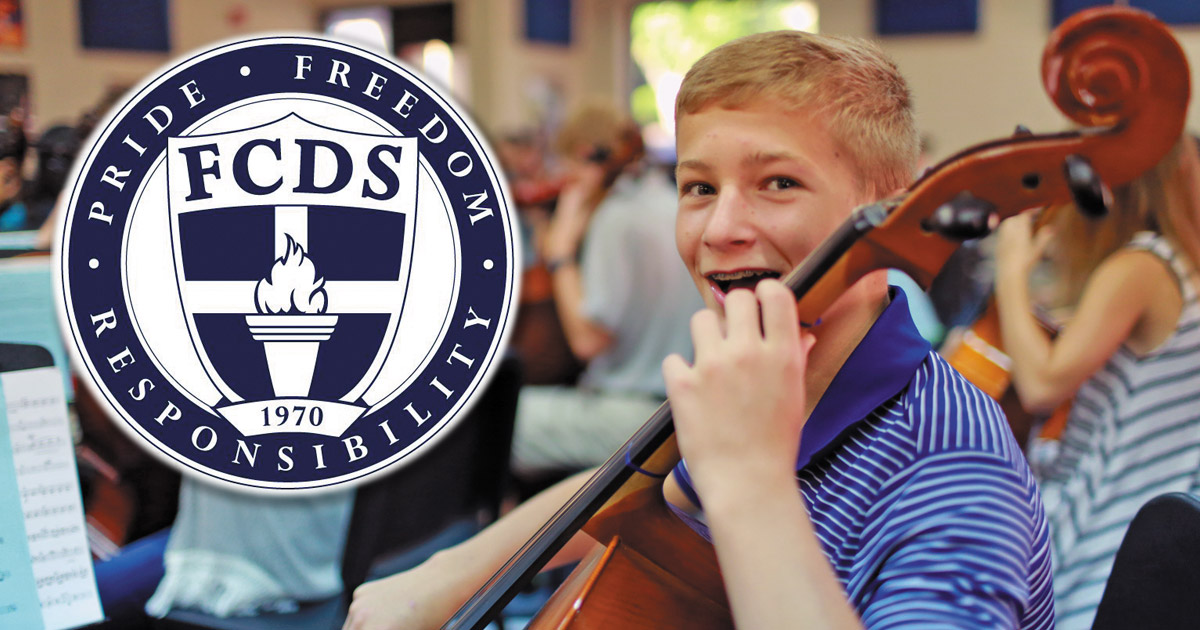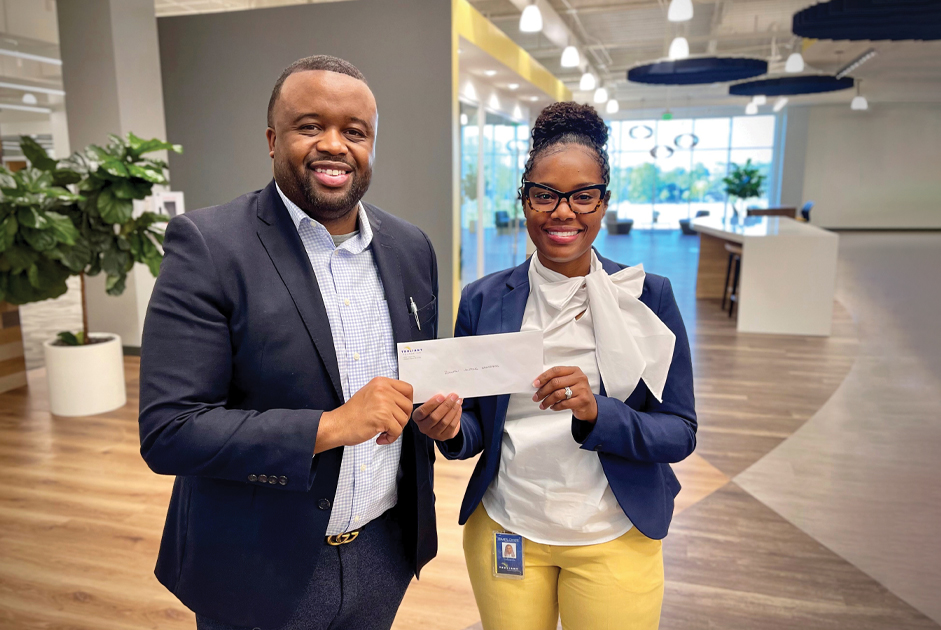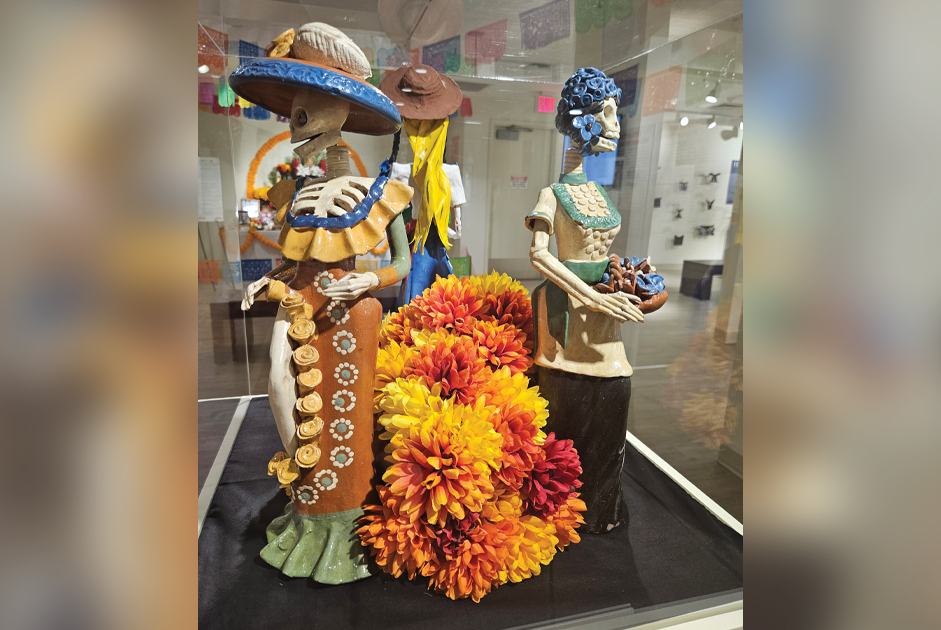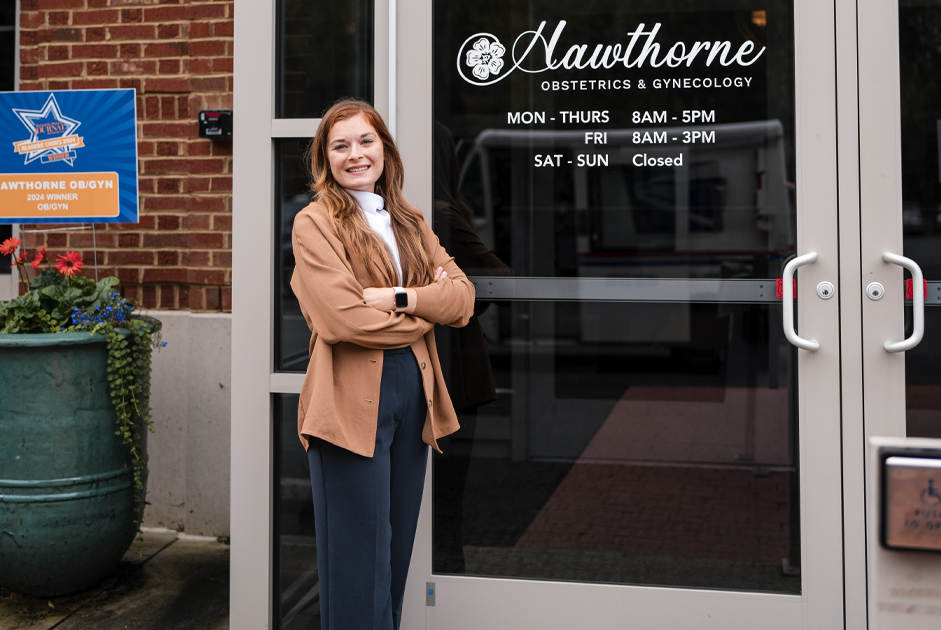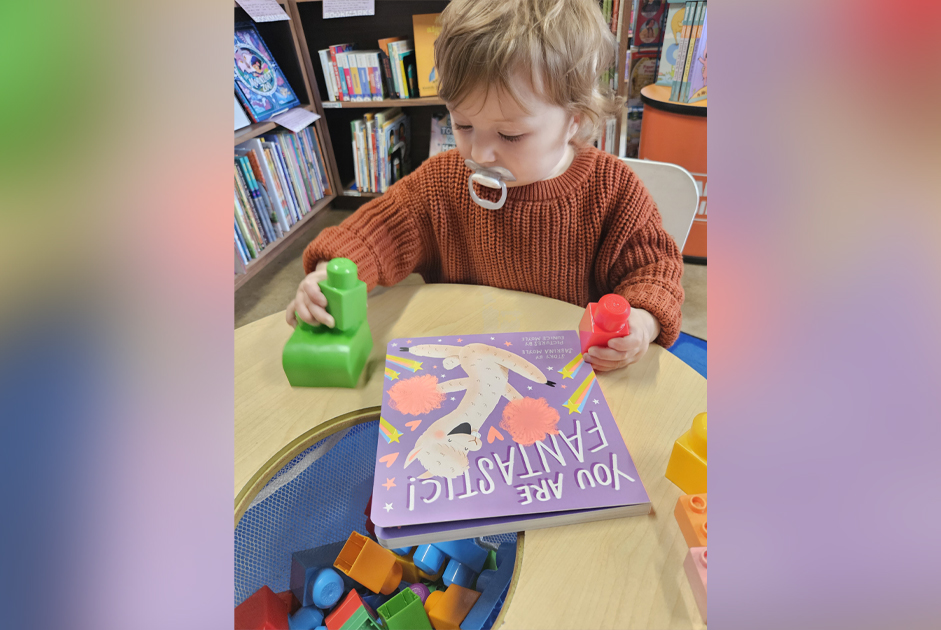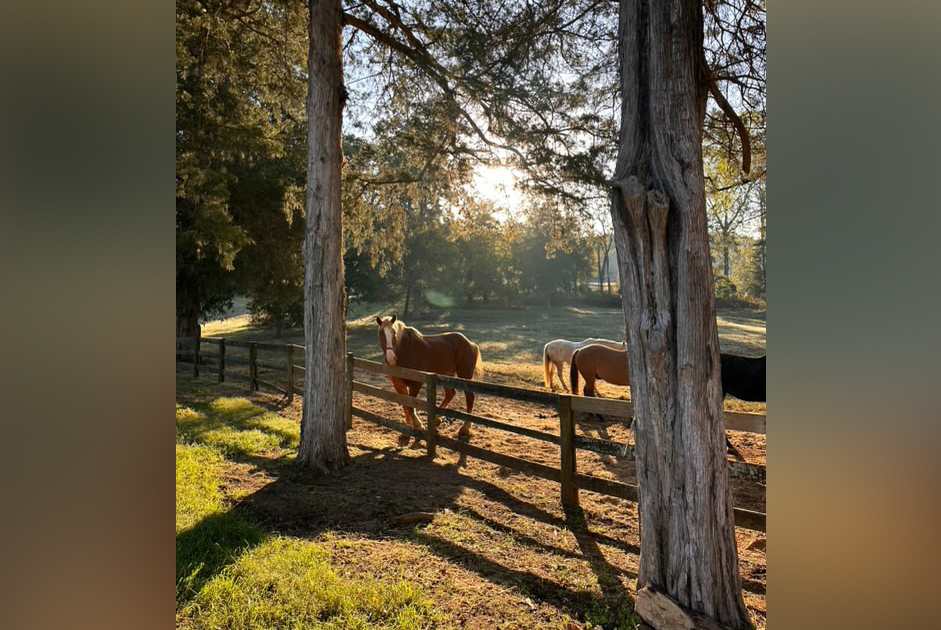By Priscilla St. John
“Forsyth. For What’s Ahead.” It’s more than just our tagline. It’s our way of teaching. At
Forsyth Country Day School, we know that our students’ futures will look very different than ours did. We also know that what they learn and how they learn are essential to preparing students for what’s ahead. So, we’re disrupting the old methods of teaching. How? Check out ten ways we’re doing things differently.
- Helping local businesses solve real problems
Business and entrepreneurship students get their hands dirty and tackle real-world problems. They’ve served as consultants for a number of local businesses from restaurants to tech companies. “I tell our business partners up front that while we hope they receive some benefit from the process, it’s really about the learning opportunities for our students,” says Business and Entrepreneurship teacher Mark Palmer. “What we find every time is that the kids learn a great deal and the businesses always come away with at least one or two new ideas they can implement. It’s always a win-win experience.”
Junior Oliver Jewell agrees. “Through my experiences in Business and Entrepreneurship, I have learned the true value of teamwork and hands-on learning,” he says. “Working with actual companies in the Triad has given me the opportunity to fully immerse myself in the business world while learning valuable professional and leadership skills along the way.”
- Teaching kids how to fail.
At FCDS, failure is an option. In fact, it’s a valuable part of the learning process. This atmosphere is especially important in the school’s middle and high school engineering courses and its Business and Entrepreneurship class.“Failing teaches you to persevere; it gives you grit,” says Director of Entrepreneurship Nathan Battle. “There are going to be times when you go through the process and your machine doesn’t work out as intended. That happens all the time in entrepreneurship and in engineering Successful entrepreneurs are people who fail and learn quickly. Engineering gives you the skills to solve the problems.”
Seventh grader Ana Calderon concurs. “Failing is a part of life,” she says. Through her study of engineering, she has learned how to accept and even welcome failure. “It teaches you good lessons—what not to do the next time.”
- Talking in class.
In the FCDS Lower School, students are always talking in class—and that’s a good thing. Conversational Spanish, which is taught daily to students in kindergarten through fourth grade and twice a week to preschoolers, is centered on having relatable conversations. “We teach in a natural way,” says Maria Theresa Ortiz-Thompson, who created the Lower School world language curriculum and teaches second to fourth graders. “We don’t focus on the parts of speech. If you speak to one another and tell stories, you access the vocabulary through the story and you retain it better. Grammar and vocabulary come instinctively.”
Learning a world language also generates a respect and appreciation for people’s similarities and differences. “Part of language learning is the culture,” says Sheila Shearin, who teaches preschool through first grade. “We learn and respect that there are different people with different languages and different ways of doing things. That opens up a lot of curiosity about the world for these children.”
Third grader Sophie Wyshner agrees. “It’s really cool that even though we all have different languages, we can all learn to talk to each other.”
- Challenging traditional classroom seating
When you walk into some elementary school classrooms at Forsyth Country Day, you might be surprised to learn that students don’t have assigned seats—they don’t even have to sit in chairs! First grade teacher Happy Bell-Wiatrek, whose room looks more like a coffee shop with tables of different heights and seating options that include cushions, padded milk crates, exercise balls, and rocking Hokki stools, believes strongly in the benefits of flexible seating. “It allows student to be their best learning selves,” she says. “Having choice not only empowers students to be active learners, but allows them to think for themselves.”
In Mrs. Bell-Wiatrek’s class, students decide where to sit and what to sit on each day, and they move throughout the day when subjects changes. One student who enjoys bouncing on an exercise ball during math may prefer to sit on a cushion during reading, and that’s O.K. “When no one is telling them where to sit and remain for the entire day, and students have choice, they take more responsibility for their own learning,” Mrs. Bell-Wiatrek says.
- Changing at the speed of need.
If educational institutions are vessels on an ocean, most are like cruise ships—though large and strong, they are big, unwieldy, and hard to maneuver. Changing course can take a long time.
“We’re a mission-led institution,” Head of School Gardner Barrier says. “Our mission gives us direction, and our size makes us like a speedboat—we can change when we see the need to do so, in a more agile manner.”
The school made just such a change in the fall when it built a new engineering center and expanded its engineering program—originally reserved for high school students who were serious about becoming engineers—into the Middle School. “Our vision was to develop creative problem solvers who persevere but also understand the the greater contribution of what they do,” says Associate Head of School for Academic Affairs Michelle Klosterman. “Not all students who take engineering in Middle School will come away wanting to be engineers. It’s all about exploration and gaining the skills engineers use in their work and applying them to your life.” And about being able to see a need and opportunity that would benefit students and seize it—at a moment’s notice.
- Trusting the teachers.
Standards are important because they outline the goals for instruction and the learning destination for students, but they don’t need to determine the journey. “In the independent school classroom, teachers are innovators. They get to consider the 1,000-plus ways to reach a destination, and oftentimes the 100-plus journeys we need to take to reach the needs of individual students,” says Dr. Klosterman. “One size doesn’t fit all, and in independent schools, out of necessity and what’s in the best interest of students, we determine our own paths, supported by colleagues and leaders immersed in research on best practice, and in ongoing conversations about how to best support our students.”
- Building a community of learners.
At FCDS, teachers are all members of a division (the elementary, middle, or high school levels), but they’re also members of the school as a whole. Within and across divisions, teachers meet and collaborate, providing unique perspectives on the evolving needs of learners and directly seeing the impact of their work on students as they grow. “We are a community of learners,” Dr. Klosterman says. “We engage in conversations around best practices in teaching and learning that impact ALL students.”
- Caring about core values.
Instead of relying on a pre-packaged character program, Forsyth Country Day built its five core values—respect, responsibility, integrity, compassion, and curiosity—into daily life at the school. “We are constantly reinforcing our core values in everything we do,” Mr. Barrier says. “We’re training more mindful and empathetic citizens. The core values help kids think beyond themselves and are at the center of everything we do as a community.”
Some ways in which the school spotlights its core values include bringing in speakers on different core themes, service learning both in school and in the community at large, and—in Lower School—spending time in both the morning and afternoon reflecting on a chosen value. “In addition to defining these values, we’ve devoted time to them,” said Lower School Director Dr. Dennis Moser, Ed.D. “We have reflections at the end of the day. Kids come out of academic mode and ask, ‘How did I treat my friends today?’ or ‘Was I respectful today?’”
- 9. Making music and a three-point shot.
At FCDS, there really aren’t “theater kids” or “jocks”—because the point guard is probably in the play, too. Students are exposed to a wealth of opportunities outside of the classroom that allow them to find their passion. Whether its playing on one of the school’s athletic teams, participating in a musical or play, making music in the string orchestra or in a choral group, joining a club, or taking the lead in student government, there’s a path to success for every kid at FCDS—and trying different things is encouraged.
“The vast majority of our students participate in both the arts and athletics,” says Upper School Dean of Students Virginia Nichols. “It’s a very inclusive community, and the kids are very supportive of one another.”
- Building a path through personal development.
Although Forsyth Country Day is known as an excellent college-preparatory school, developing students as people is just as important. “We’re not merely helping kids get into college, or preparing them for the next grade,” Mr. Barrier says. “We’re concerned with who they are when they show up.”
Personal development is stressed as part of the school’s mission, and there are many layers of support that help students be their best selves. Counselors in all three divisions, a robust advisory system, and an acclaimed college counseling program combine to help students achieve all of which they are capable. The school also ensures its students stay mindful of their own wellness through discussions of healthy eating and exercise, stress management, and nurturing personal relationships over spending time on devices.
“Where we go to college is important, but it’s secondary to our outcomes as human beings,” Mr. Barrier says. “We’re dedicated to preparing our students for everything that’s ahead so that they’re ready for the next step, no matter what that may be.”
If you’re looking for a school to prepare your child for what’s ahead, we invite you to learn more about Forsyth Country Day School by visiting FCDS.org.
To schedule a campus tour, please email [email protected] or call 336.946.1657.

